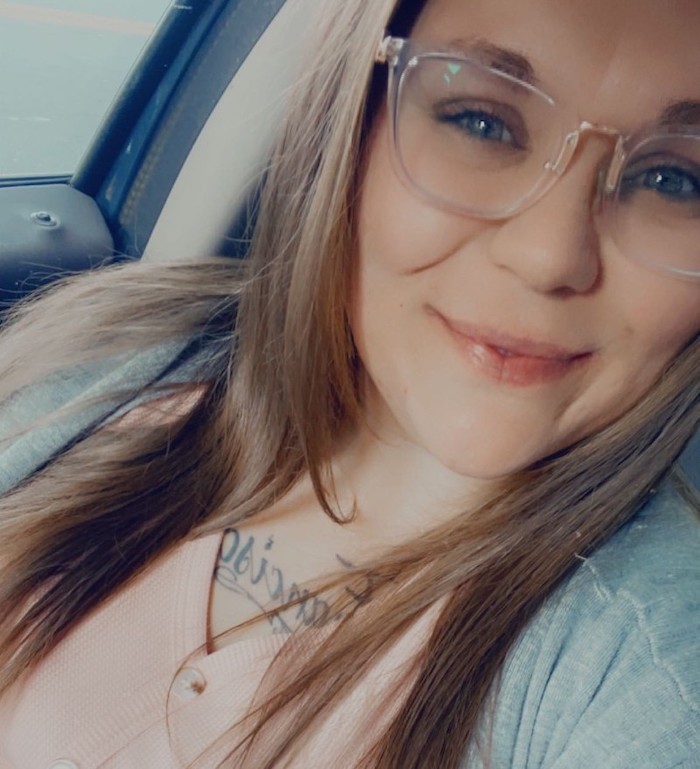
Nicole (“Nicky”) Adams, she/her, is a Mobile STEP Case Manager at PPP. She supports patients in starting medication for opioid use disorder (MOUD), like Suboxone and Sublocade. Nicky also connects them to resources like primary care physicians, mental health support, or ID and other documentation.
Nicky is passionate about her work because she was once in the same position as many of our participants—unhoused, living with substance use disorder, trying to make sense of years of trauma and hurt. On the last Friday of Recovery Month, Nicky shared her own recovery story .
“I grew up with great parents, my mom and stepdad, but they both used substances. I started dabbling at a very young age — 12 or 13 — with weed, alcohol, and pills. When I was 14 years old I contracted HIV. That catapulted me into my substance use.
Although there were a lot of advances in medicine and therapy 17 years ago, the stigma was still very strong. My parents had separate dishes for me to use. I dropped out of high school because I was ruthlessly bullied. I really struggled with accepting my diagnosis. I was very afraid I was going to be alone for the rest of my life and substance use was the main way I could escape all of that.

Once I contracted HIV my mental health suffered a lot. I was in and out of juvenile placements — group homes, psych hospitals, long-term psych hospitals, a lot of juvenile placements through probation. At 19, I came out to Kensington and lived on the streets, homeless. I engaged in a lot of risky behaviors.
In 2012 I was incarcerated and sent upstate for two and a half years. When I was released, I was able to finally get on a methadone program that worked for me with the help of my mom and stepdad. Now seven years later I am still in recovery, going strong!
I was so upset with myself: 'What’s wrong with me that all these people can do it and I can’t?’
My goal is to get off methadone, but I am not someone who feels like I have to get off, especially if I feel like it will put my recovery in jeopardy. It’s one of the main things that saved my life and allowed me to work on myself without having to focus on the urges to use.
I work hard on setting aside the guilt and shame I had towards my substance use and all of the things that I did in my active use. I was always told that I had to use NA (Narcotics Anonymous)/AA (Alcoholics Anonymous) to sustain my recovery — every in-patient treatment day, every jail that I was in told me to use it. NA is an amazing support system and it works for some people, but I couldn’t find recovery in just NA. I would try and try and try, and I could not get it. I was so upset with myself: 'What’s wrong with me that all these people can do it and I can’t?’
As harm reduction became more of a presence, I realized that I need to stop putting myself in this box. Recovery is not a box. There isn’t a one size fits all. I’ve tripped and fallen many times, and now I do what works for me. Many people have told me that I'm not in recovery because I'm on methadone. Recovery is not caring what other people think. Do what you need to do to save your life.
Recovery was not possible for me without the support of other people, whether that was friends, family, people that I met in my methadone clinic, or using outside support services like a CRS and dharma recovery.
One of my biggest goals is to buy a house so that I can have a place for my mom to stay with me. My mom is the only family member that I have. She is very sick and lost her house. I want to buy a home that is conducive to her health and recovery.
For many years I allowed HIV to define who I was and where my life went. Nobody deserves that.
A dream of mine is to open a nonprofit that helps shelter animals for people who want to go to treatment but don’t because they have nowhere to place their animals. It’s been a huge barrier for multiple participants that I've worked with. And, I love animals!
I’m married and we have three kids together. They are her children but I call them my bonus babies because we’re super close. I'd love to be able to give them the best life, the life they deserve.
I want people to know that I will never judge them. What you have been through in your life doesn’t need to define who you are. For many years I allowed HIV to define who I was and where my life went. Nobody deserves that. Everybody deserves happiness. I was one of those people who wanted to die, hoping that my HIV would kill me, but it didn’t because I had a purpose. There is a reason I am alive."